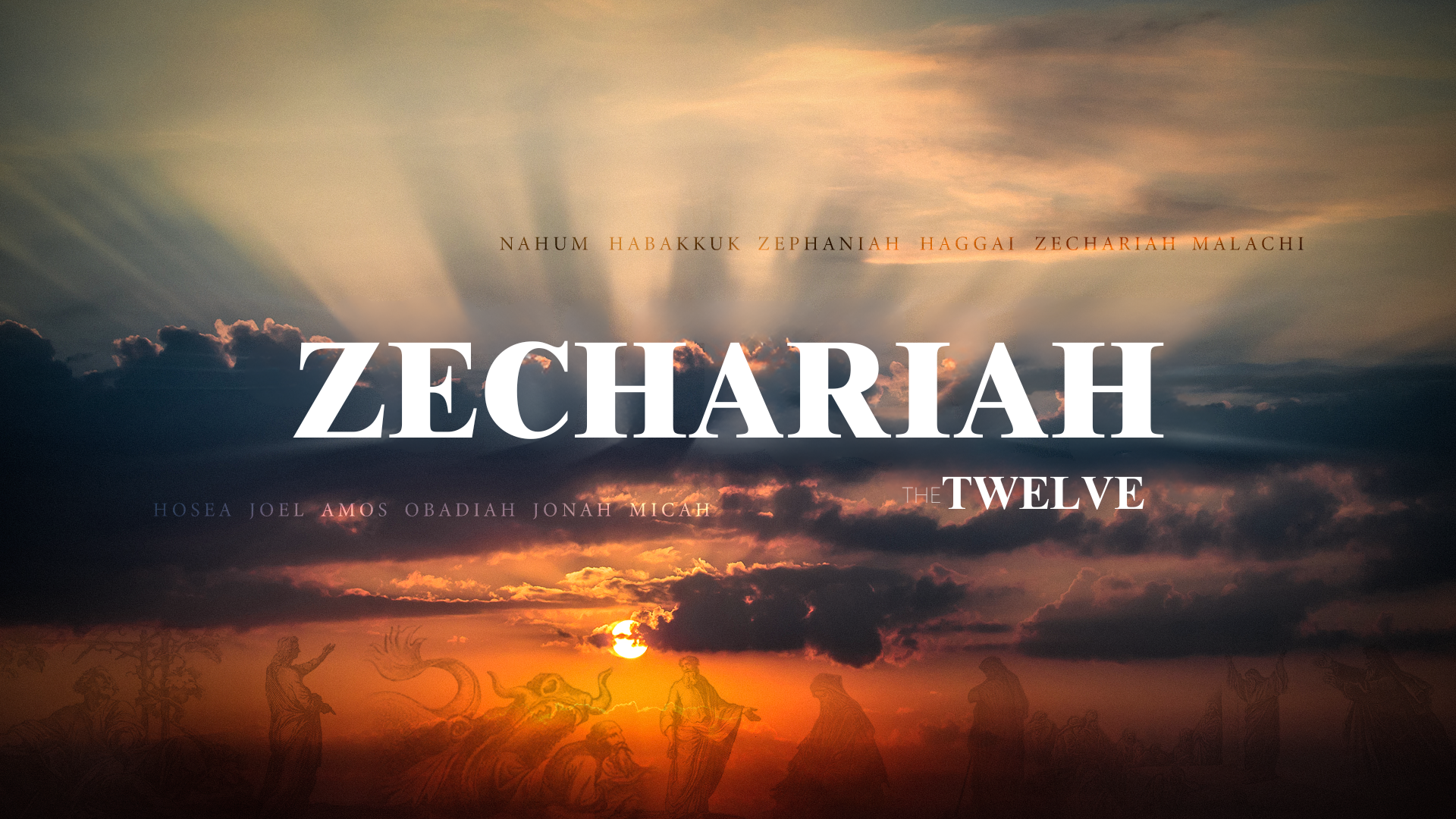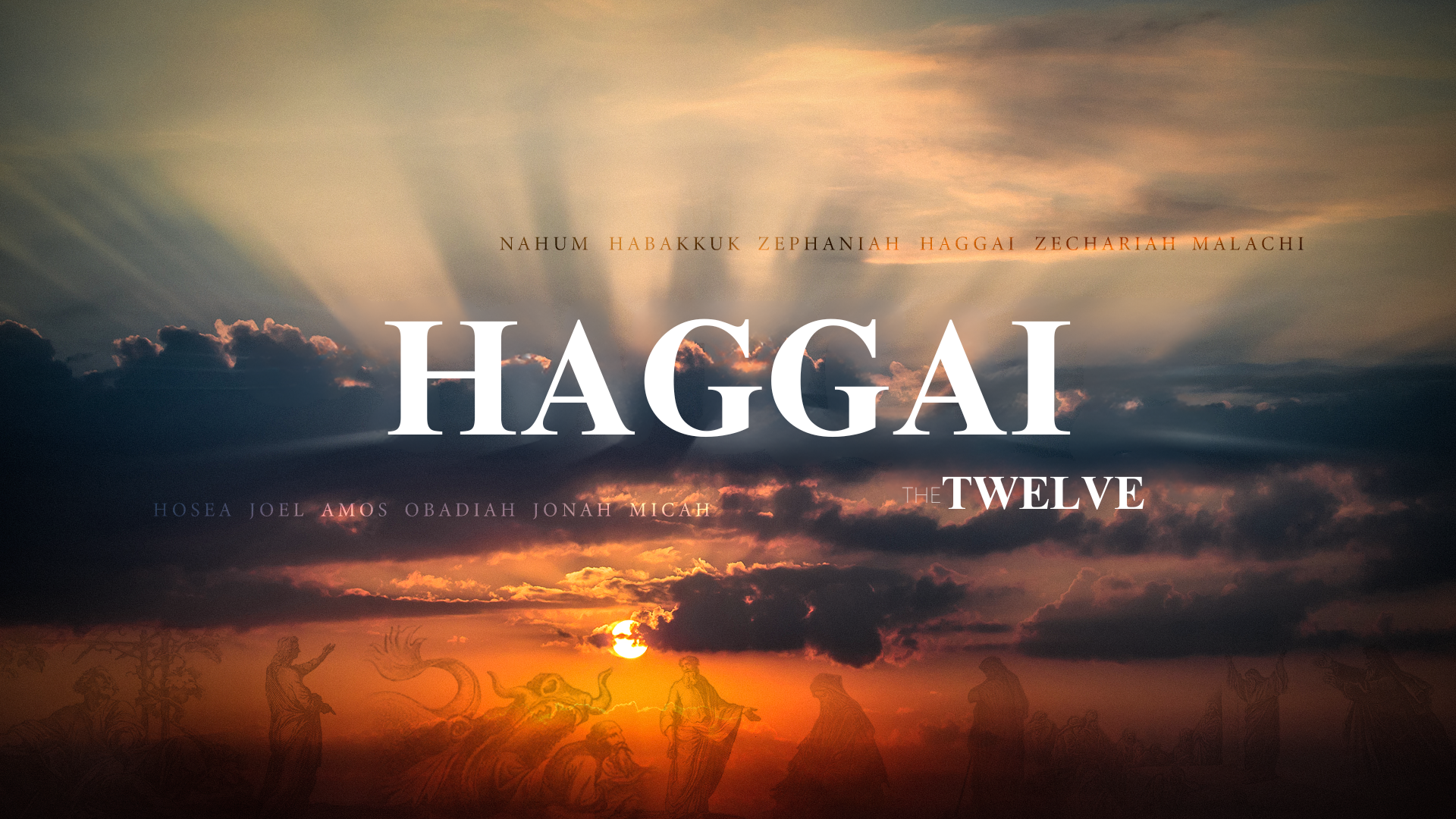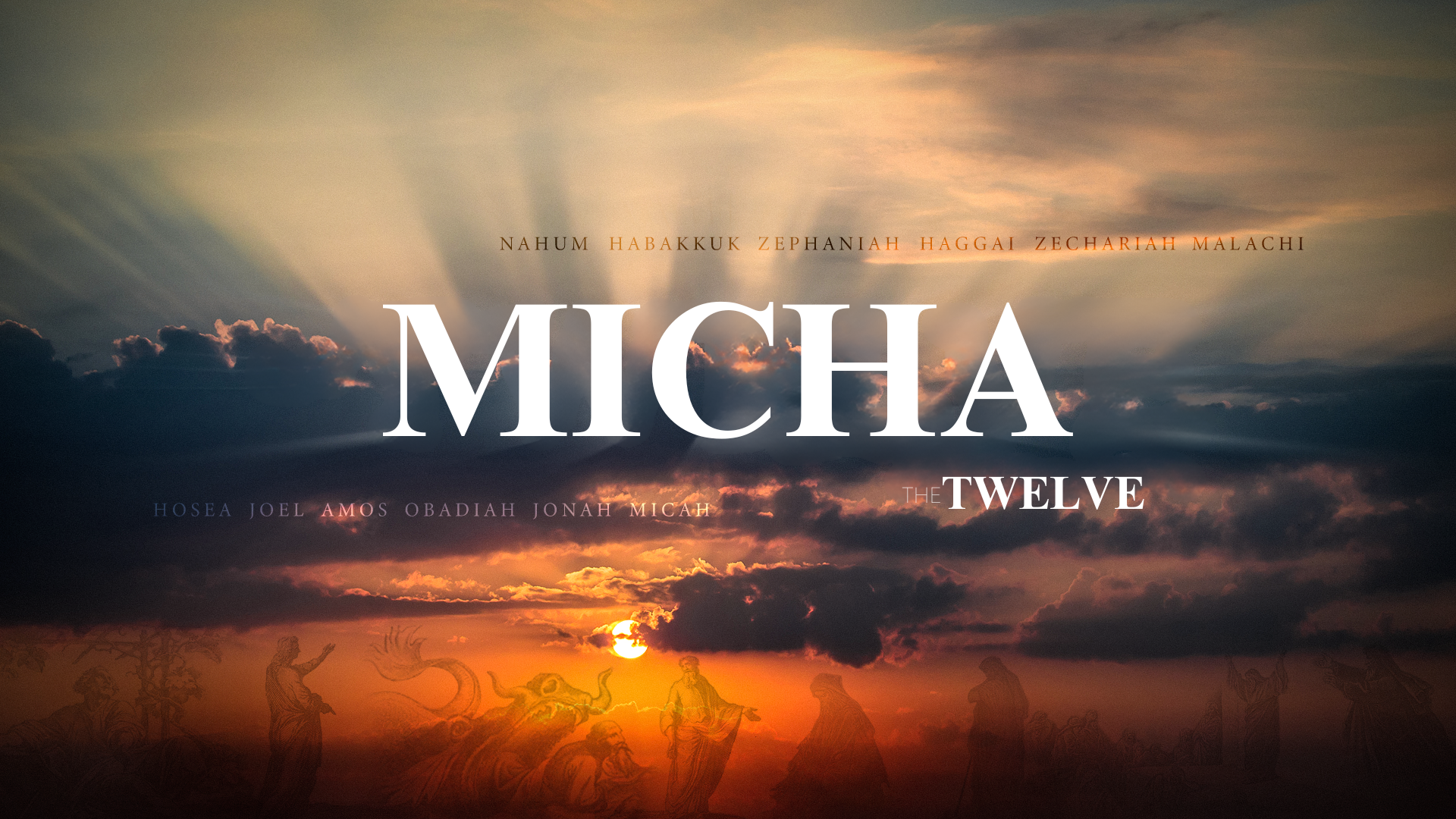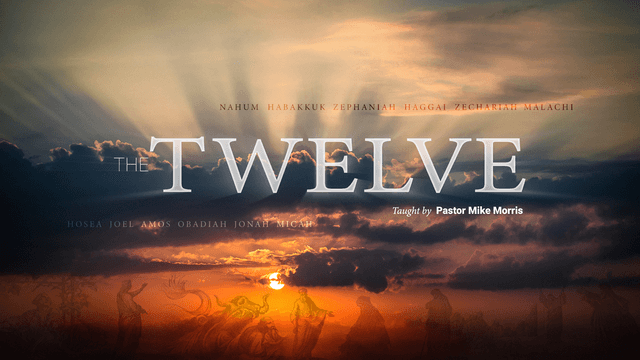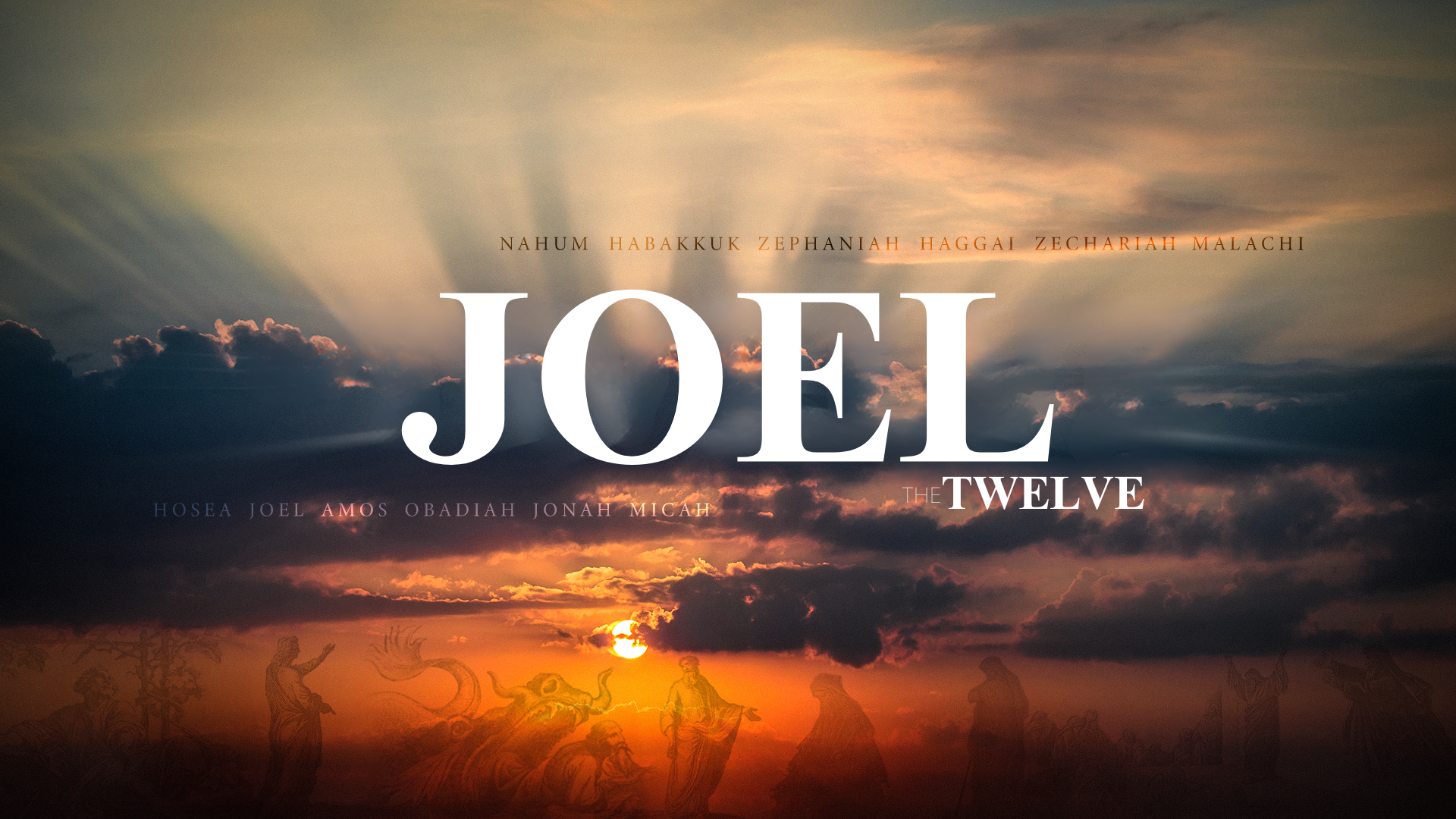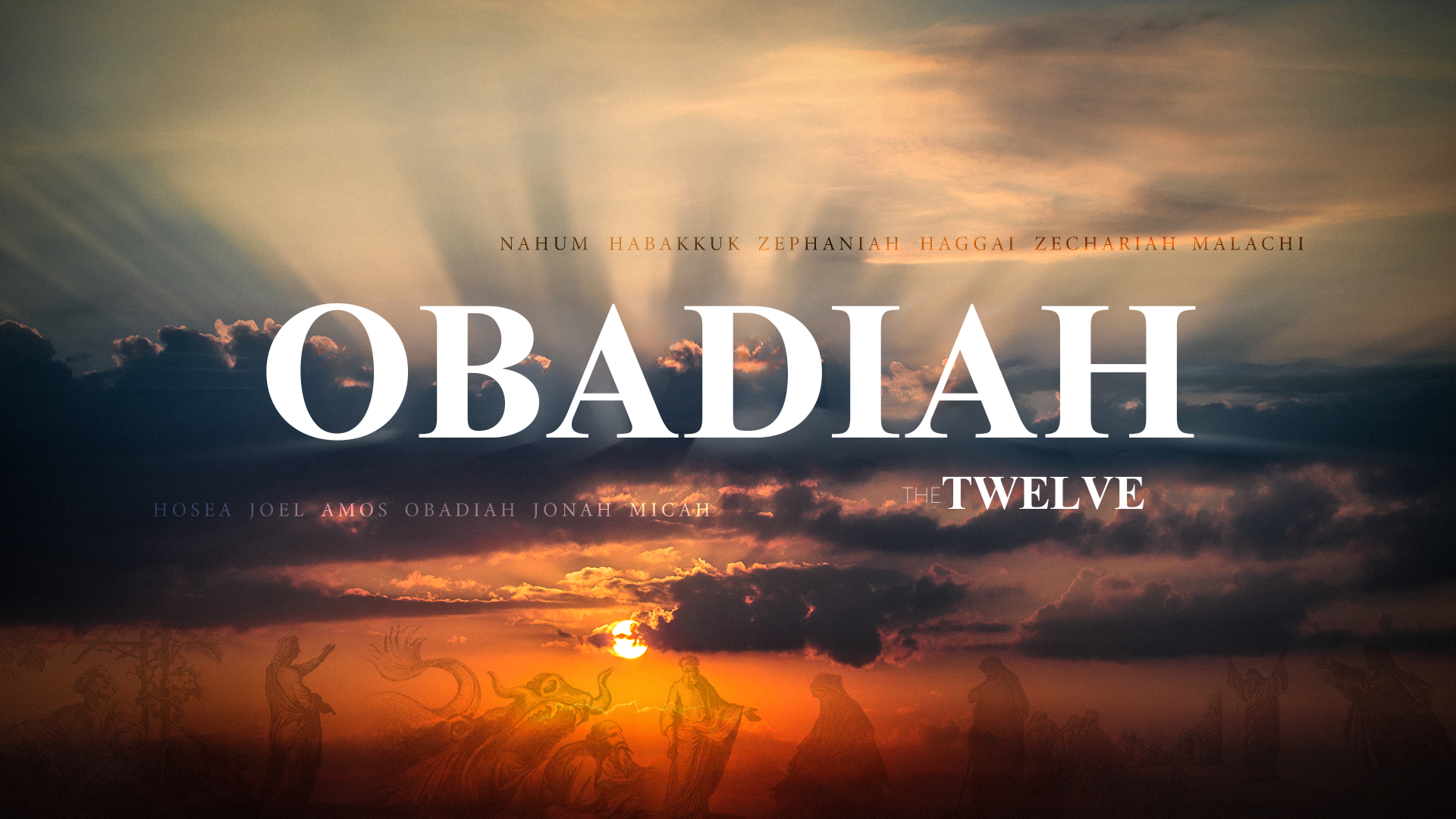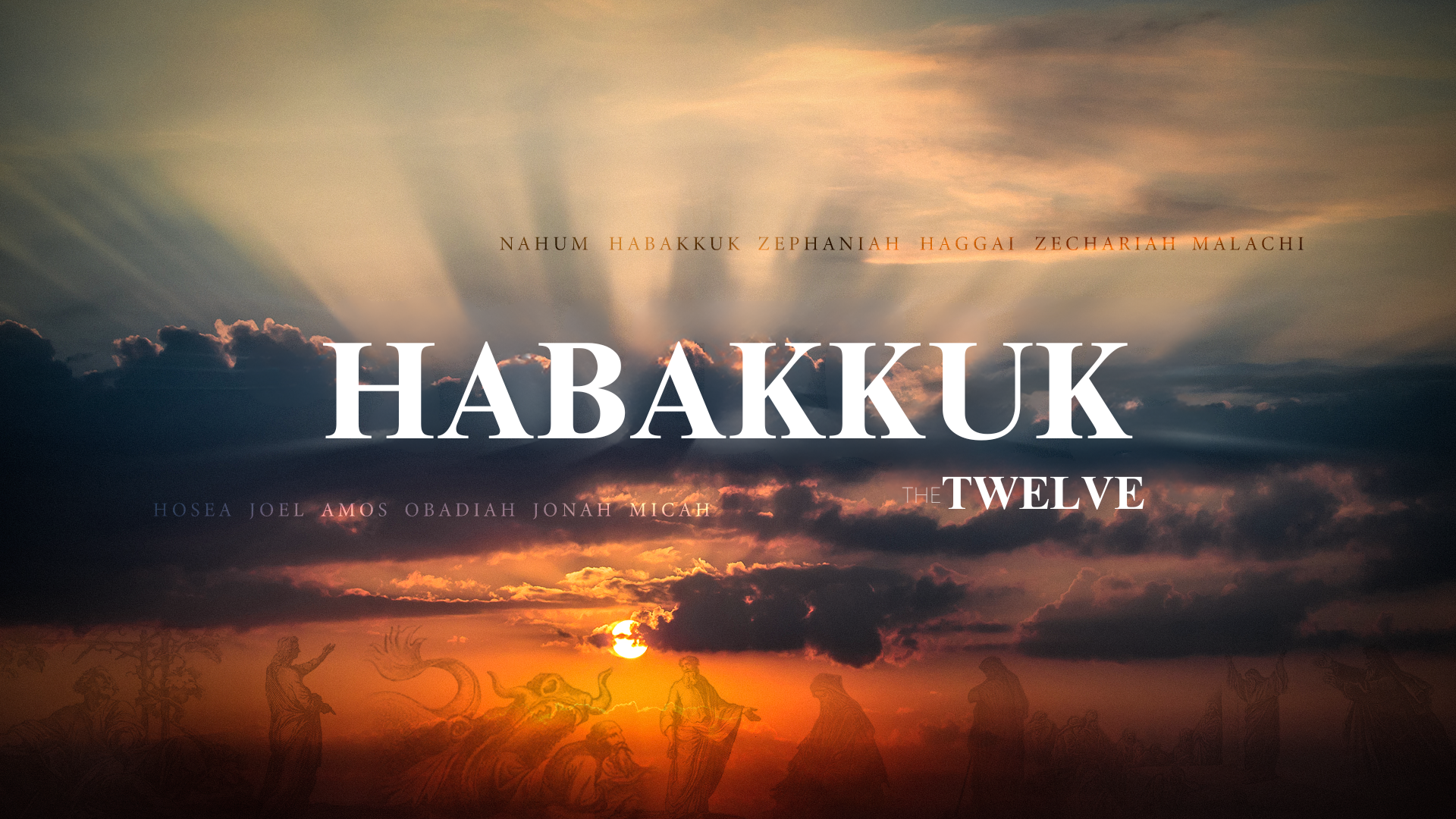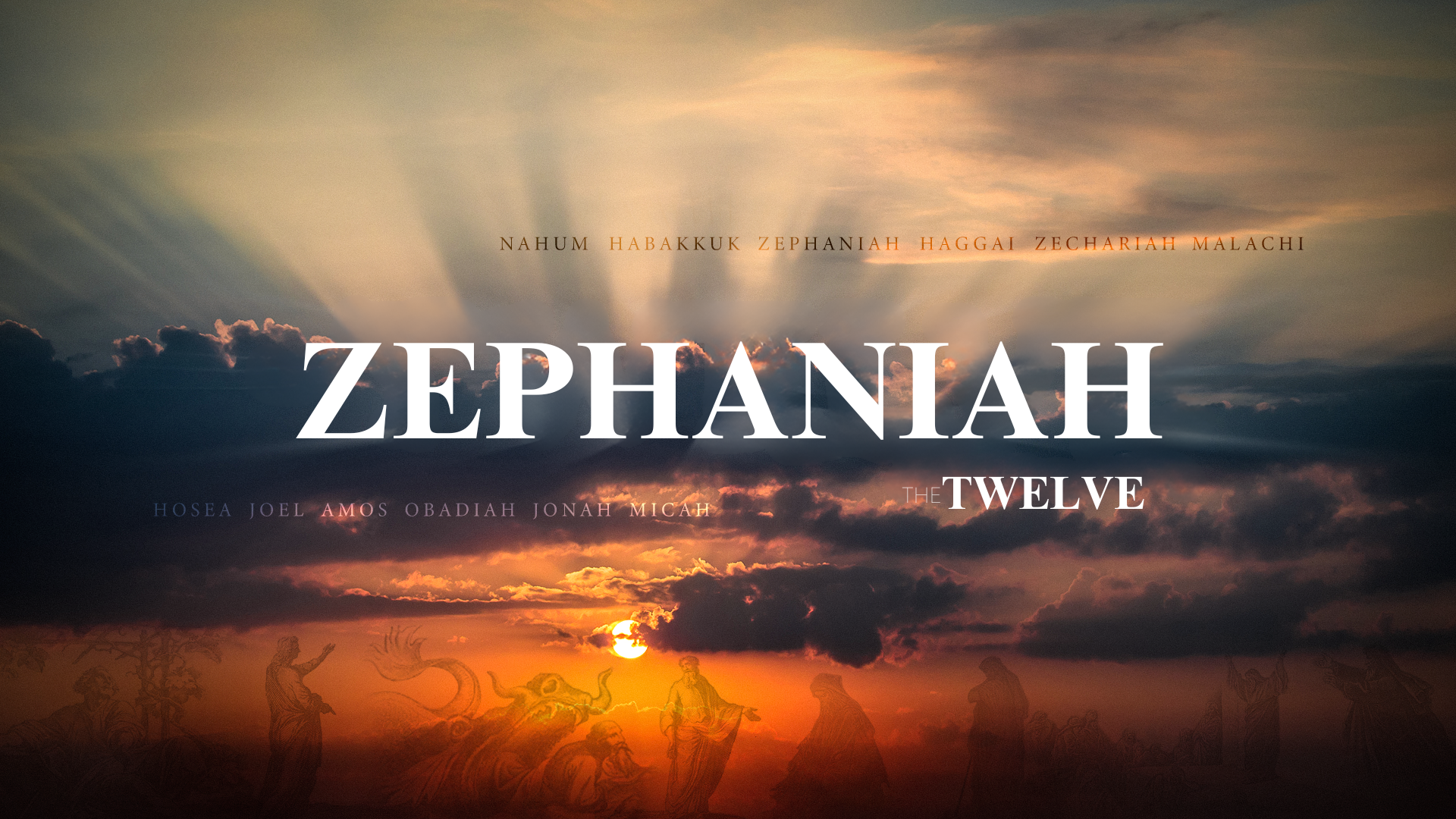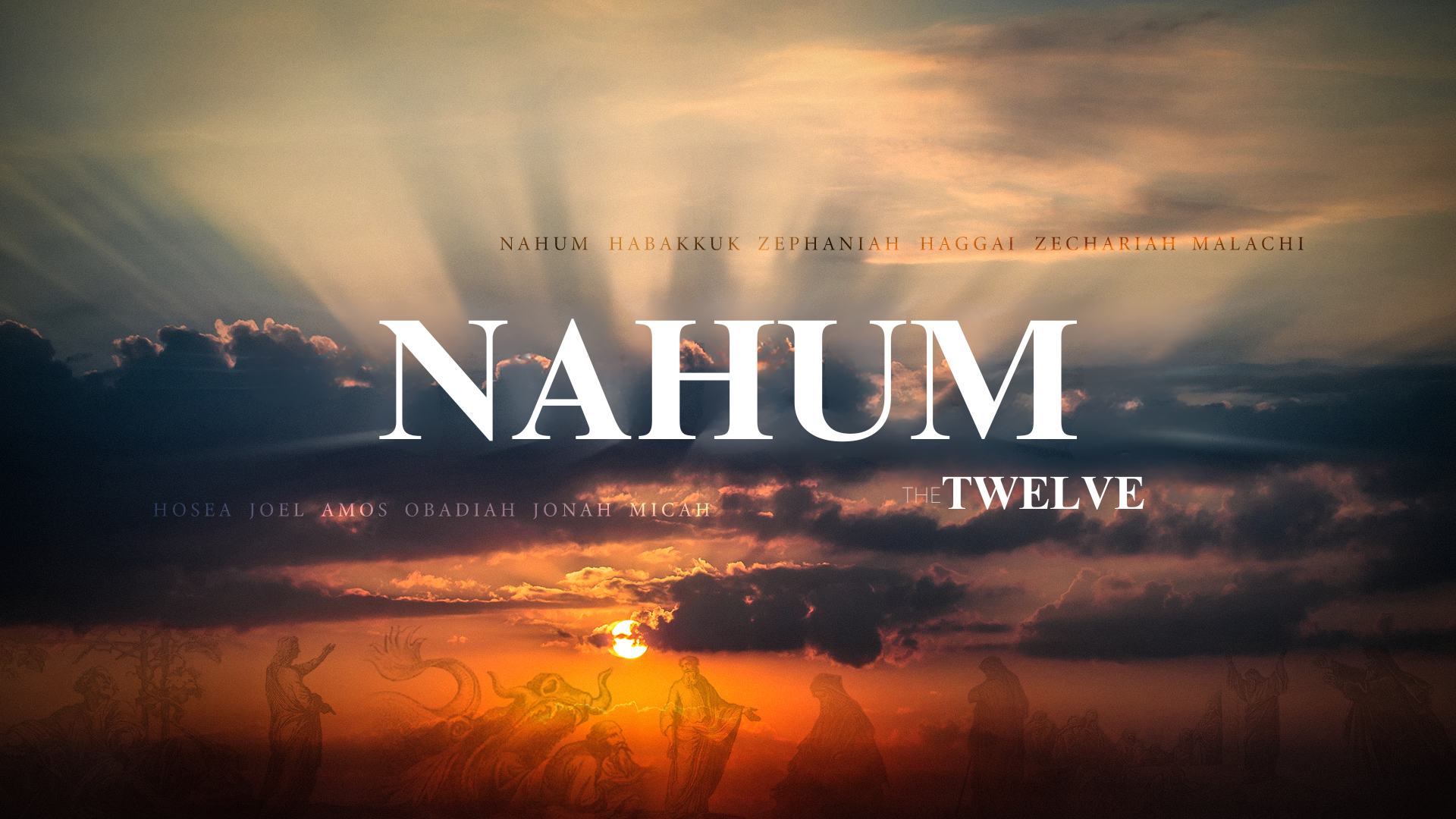MANUSCRIPT
Welcome back as we continue our study of The Twelve...
Let’s set this book in its context once again -- northern kingdom of Israel; 760 BC, just 20 years before the beginning of the deportation of Israel into exile in Assyria…
We recall last week from chapters six and seven that Israel had rejected God’s final offer of “Seek Me and live” as well as His commands to live according to the covenant...God responds with both oracles and visions of judgment delivered through Amos...and today we reach the end of this prophecy from the herdsman of Tekoa...
As we begin, let me encourage you to look for ways in which the covenant God works with and in us to reconcile and restore us to Himself and to others...we’ll talk more about that at the end...
Let’s dive into the text...today we’ll be covering chapters eight and nine...
This is what the Lord God showed me: behold, a basket of summer fruit. 2 And he said, “Amos, what do you see?” And I said, “A basket of summer fruit.” Then the Lord said to me,
“The end has come upon my people Israel;
I will never again pass by them.
3 The songs of the temple shall become wailings in that day,”
declares the Lord God.
“So many dead bodies!”
“They are thrown everywhere!”
“Silence!”
Now we come to Amos’s fourth vision...in the vision of the plumb line, we see the certainty of the accountability and judgment God would bring to Israel...in this fourth vision, God shows Amos another object lesson -- a basket of summer fruit
The pattern is the same -- the object is presented, God asks, “Amos, what do you see?” Amos responds, and God explains the meaning of the vision...this time the meaning is found in the wordplay between the two key Hebrew words, one for “summer fruit” -- ‘qayis’ (ki - eetz) -- and the one for “end” -- ‘qes’ (kets)
This teaching technique is not uncommon in prophetic writings...in this case, God emphasizes a stark, single truth: the end has come for Israel...in longsuffering and patience their covenant God had sent prophets to call the nation back to Himself and His Law, but the people had ignored them...now the time for judgment had come
God shows the nation a picture of what the aftermath of the judgment will be...this time it’s as if you’re walking the streets of Samaria or Bethel after their defeat...God is giving them a soundtrack, as it were, of their own destruction, complete with the voices of the people:
3 The songs of the temple shall become wailings in that day,”
declares the Lord God.
“So many dead bodies!”
“They are thrown everywhere!”
“Silence!”
The idolatrous worship songs in which the Israelites once delighted are now screams and wails of anguish and grief...from the temples to each home in the city to the streets and public spaces, the dead bodies litter the cities and countryside of Israel, so many that no care is given to properly tending them and preparing them for burial...no speech or laughter or singing is heard, only weeping and sorrow and pain
Last week, in the vision of the plumb line, God focused on the idolatrous worship practices of the northern kingdom...now He turns to address the sinful exploitation of the poor by the wealthy and powerful in the nation...
4 Hear this, you who trample on the needy
and bring the poor of the land to an end,
5 saying, “When will the new moon be over,
that we may sell grain?
And the Sabbath,
that we may offer wheat for sale,
that we may make the ephah small and the shekel great
and deal deceitfully with false balances,
6 that we may buy the poor for silver
and the needy for a pair of sandals
and sell the chaff of the wheat?”
The religious and political elite had become so callous that all they cared about was moving past the great feast days and celebrations of their long-ignored faith, and getting back to business...they longed for the new moon and the Sabbaths to pass so the trading could begin again
The ephah was a common measurement for grain purchases...it was equal to a little more than half a bushel today...the shekel was the primary coin of currency in Israel...the intent of the wealthy traders was to give less wheat or grain in the trade -- “make the ephah small” -- and to charge more for it -- “make the shekel great” -- to defraud the person with whom they’re doing business...
Scripture is clear on the sinfulness of this practice in Deuteronomy 25.13-16
13 “You shall not have in your bag two kinds of weights, a large and a small. 14 You shall not have in your house two kinds of measures, a large and a small. 15 A full and fair weight you shall have, a full and fair measure you shall have, that your days may be long in the land that the Lord your God is giving you. 16 For all who do such things, all who act dishonestly, are an abomination to the Lord your God.
Now the funeral song of Israel continues, concluding the message of the first four visions with a sweeping judgment oracle...
7 The Lord has sworn by the pride of Jacob:
“Surely I will never forget any of their deeds.
8 Shall not the land tremble on this account,
and everyone mourn who dwells in it,
and all of it rise like the Nile,
and be tossed about and sink again, like the Nile of Egypt?”
Israel now hears these terrifying words: God will never forget what they have done
Humanity’s greatest need is forgiveness...for the Lord God to know what we have done to offend Him and His holiness, but while knowing, to still forgive us...without God’s forgiving heart, we have no hope at all...think of what it must have meant to Israel to hear from their covenant God, “Surely I will never forget any of their deeds...” -- indeed the land would tremble and all would mourn...
9 “And on that day,” declares the Lord God,
“I will make the sun go down at noon
and darken the earth in broad daylight.
10 I will turn your feasts into mourning
and all your songs into lamentation;
I will bring sackcloth on every waist
and baldness on every head;
I will make it like the mourning for an only son
and the end of it like a bitter day.
“That day” of course refers to the judgment day for Israel, when God would bring to completion the judgment of the people and the land...
The description in verse 9 seems to represent a solar eclipse...there are certainly times God supernaturally causes darkness in the day...but He can use natural events just as much as supernatural ones...astronomers have worked backwards in time and determined that there was a solar eclipse in the year 763 BC, consistent with the years just after this prophecy and just before the final destruction of the nation and the deportation of the people into exile...
Verse 10 continues the funeral motif...feasts become mourning instead, as songs become lamentations...some mourners would wear sackcloth while others would shave their heads in times of great distress and grief...Jeremiah 16.6 refers to that practice
The next judgment is truly terrible -- God’s word would be taken from them...
11 “Behold, the days are coming,” declares the Lord God,
“when I will send a famine on the land—
not a famine of bread, nor a thirst for water,
but of hearing the words of the Lord.
12 They shall wander from sea to sea,
and from north to east;
they shall run to and fro, to seek the word of the Lord,
but they shall not find it.
Not only would the people suffer judgment through the Assyrian destruction and exile, but even worse, they would suffer a famine of the word of the Lord
Here the punishment precisely fits the crime...since the people of Israel have rejected the word of the Lord, given through Amos and the other prophets to the northern kingdom, God would eventually withdraw the prophetic message from them as they depart into exile...and Amos’s description of it as a famine it is fitting...the people of Israel were starving already, through their rejection of Amos’s prophecy and fervent desire for idolatrous worship instead of the worship of the one true God...they would wander from sea to sea (the Mediterranean Sea to the west and the Sea of Galilee and the Dead Sea to the west) and north to east, a way of describing the extent of the land of Israel...no matter where they went, the people could no longer encounter the word of God...
13 “In that day the lovely virgins and the young men
shall faint for thirst.
14 Those who swear by the Guilt of Samaria,
and say, ‘As your god lives, O Dan,’
and, ‘As the Way of Beersheba lives,’
they shall fall, and never rise again.”
The Lord God begins to conclude this part of the judgment oracle, as He says that even the youngest and strongest in the society shall faint for thirst...the implication is that if that group faints from thirst, the rest of the more vulnerable -- the young, the old, the sick --have already fainted...
And that word of judgment is made complete by the Lord’s reference to the idols that Israel worshipped...look at the language here...
14 Those who swear by the Guilt of Samaria,
and say, ‘As your god lives, O Dan,’
and, ‘As the Way of Beersheba lives,’
they shall fall, and never rise again.”
The common thread is that these phrases represent oaths or pledges a worshipper would make to a false god, an idol...the identity of the idol is less important than the fact that it was common in Israel to swear allegiance to or make a pledge in the name of a false god...absolutely incredible!
The “Guilt” of Samaria -- some translations will use the word “Shame” instead -- apparently refers to a false god obviously associated with the capital city of Samaria, but it doesn’t appear to be a proper noun...it would seem that Amos refused to even name this idol, instead calling it the “shame” or “guilt” of the city
“As your god lives, O Dan” is clearer...Dan was an idolatrous worship center, and had been since the very beginning of the nation...I Kings 12.28-30
28 So the king (Jeroboam I) took counsel and made two calves of gold. And he said to the people, “You have gone up to Jerusalem long enough. Behold your gods, O Israel, who brought you up out of the land of Egypt.” 29 And he set one in Bethel, and the other he put in Dan. 30 Then this thing became a sin, for the people went as far as Dan to be before one.
This passage comes at the very beginning of the divided monarchy...this golden calf was now 170 years old and continued to function as a false god for those in northern Israel
The final phrase, ‘As the Way of Beersheba lives,’ describes a worship pilgrimage, from the northern kingdom across the border into Judah, then to Jerusalem, then another 54 miles to the south to Beersheba...this route apparently became a well-traveled pilgrimage, earning itself the title “the way of Beersheba” referring back to the condemnation in Amos 5.5
All those who would worship the Guilt of Samaria...who would fall before the golden calf of Dan...who would make the long journey to Beersheba to worship idols...they would fall, and never rise again...they would die in exile, just like their high priest, Amaziah
Now we turn to the final chapter of the book, and the final vision...Amos says this:
I saw the Lord standing beside the altar, and he said:
“Strike the capitals until the thresholds shake,
and shatter them on the heads of all the people;
and those who are left of them I will kill with the sword;
not one of them shall flee away;
not one of them shall escape.
2 “If they dig into Sheol,
from there shall my hand take them;
if they climb up to heaven,
from there I will bring them down.
3 If they hide themselves on the top of Carmel,
from there I will search them out and take them;
and if they hide from my sight at the bottom of the sea,
there I will command the serpent, and it shall bite them.
4 And if they go into captivity before their enemies,
there I will command the sword, and it shall kill them;
and I will fix my eyes upon them
for evil and not for good.”
The Lord God commands the destruction of the idolatrous temples with great violence, with parts of the pillars raining down on the idolaters within...and He poetically promises a fierce determination to root out the Israelites from wherever they try to hide from His judgment: He will bring them up from the place of the dead, He will bring them down from heaven, back from the remote top of Mt Carmel, up from the bottom of the sea... even in exile they will not be safe from judgment, for He Who commands all the armies of heaven and earth will bring the sword to Israel even in Assyria...we would say “You can run, but you can’t hide”...there’s no place in all creation where the wicked can flee from the Lord God of Hosts
Here, as in chapter 4, Amos prophetically signs the Name of the Almighty God to this decree of judgment...
5 The Lord God of hosts,
he who touches the earth and it melts,
and all who dwell in it mourn,
and all of it rises like the Nile,
and sinks again, like the Nile of Egypt;
6 who builds his upper chambers in the heavens
and founds his vault upon the earth;
who calls for the waters of the sea
and pours them out upon the surface of the earth—
the Lord is his name.
Amos conveys the unquestioned sovereignty and awesome power of the Lord God...highlighting His authority to dispense righteous judgment and His ownership of the heavens and the earth, the seas and the dry land...and the signature phrase is “the Lord is His Name”
Now Amos recounts a puzzling statement from the Lord God...
7 “Are you not like the Cushites to me,
O people of Israel?” declares the Lord.
“Did I not bring up Israel from the land of Egypt,
and the Philistines from Caphtor and the Syrians from Kir?
8 Behold, the eyes of the Lord God are upon the sinful kingdom,
and I will destroy it from the surface of the ground,
except that I will not utterly destroy the house of Jacob,”
declares the Lord.
9 “For behold, I will command,
and shake the house of Israel among all the nations
as one shakes with a sieve,
but no pebble shall fall to the earth.
10 All the sinners of my people shall die by the sword,
who say, ‘Disaster shall not overtake or meet us.’
This passage, ending in verse 10, is the final judgment oracle in the book...this time the effect is to place Israel on the same level as the pagan nations: the Cushites, natives of the region south of the mouth of the Nile, often identified today as Ethiopia or Sudan; the exodus from Egypt, of which Israel was so proud, is placed by God on par with His movement of the Philistines from Caphtor, identified as modern-day Crete, to the coastal region of the eastern Mediterranean; and the Syrians from Kir, a region to the northeast of Syria
The point of this passage is that God is reminding the idolatrous Israelites that they had no cause to rely on their heritage and history as the people of the exodus and think that meant they did not have to keep the terms of their covenant with Yahweh...all nations and kings are in the Hand of the Almighty, and Israel is not to take God’s favor for granted...
In verse 8, we see a distinction made by the Lord that sets up the closing passage of this book...note the two descriptors here: “the sinful kingdom” and “house of Jacob”...they suffer different fates, if you will...the sinful kingdom is constantly under the judging eye of God, and it will be scrubbed from the surface of the earth...in contrast, the house of Jacob, will be severely punished, but is not “utterly destroyed” according to the text...so what’s the difference?
We know that the phrases “Jacob” and “house of Jacob” -- while not common -- have been used throughout the book to represent the entire nation of Israel...and of the entire nation, we know there will remain a remnant, spoken of in Amos 5.15b
it may be that the Lord, the God of hosts,
will be gracious to the remnant of Joseph.
We see it even more clearly in a parallel chapter to Amos 9, Isaiah 10, speaking of the time during and following the deportation of Israel into exile in Assyria... Isaiah 10.20-22
20 In that day the remnant of Israel and the survivors of the house of Jacob will no more lean on him who struck them, but will lean on the Lord, the Holy One of Israel, in truth. 21 A remnant will return, the remnant of Jacob, to the mighty God. 22 For though your people Israel be as the sand of the sea, only a remnant of them will return.
There would remain a remnant of the people of Israel...but what are we to make of the “sinful kingdom”?
This phrase, different from the “house of Jacob,” represents the apostate reign of Jeroboam II and his house, the royalty of Israel...the sinful leaders who rose to power in the northern kingdom...you find this judgment not just in the prophetic books, such as Amos and Isaiah, but also in the historical books, including I Kings 13.33-34...
33 After this thing Jeroboam did not turn from his evil way, but made priests for the high places again from among all the people. Any who would, he ordained to be priests of the high places. 34 And this thing became sin to the house of Jeroboam, so as to cut it off and to destroy it from the face of the earth.
The “sinful kingdom” -- the ruling class, the political and religious elite of the nation -- would be utterly destroyed in the judgment of the Lord God
The Lord God will shake them as if they were in a sieve, designed to separate the grain from the chaff...what falls to the earth is the good grain, the remnant of otherwise unbelieving Israel...what remains in the sieve are the pebbles, the sinful elite who led God’s people astray...God is saying that His judgment will be true and just...those who thought they would never be judged for their sin would be relentlessly pursued by the sword of God
But now in verses 11...everything changes with the words “in that day”
God has righteously judged His people for their sins, and Amos now looks forward to a day beyond the day of judgment, beyond the exile, to a day of light, not darkness...to a day of reconciliation and restoration...
First let us set the stage for this restoration...this act of sovereign grace is based on one key truth: the faithfulness, the fidelity, the constancy of Almighty God and His covenant
God established His covenant with Abram in Genesis 12.1-3
Now the Lord said to Abram, “Go from your country and your kindred and your father's house to the land that I will show you. 2 And I will make of you a great nation, and I will bless you and make your name great, so that you will be a blessing. 3 I will bless those who bless you, and him who dishonors you I will curse, and in you all the families of the earth shall be blessed.”
He affirmed it in Genesis 15.5-6 when God promised Abram an heir from his own body
He affirmed it again in Genesis 17.1-5 and changed Abram’s name to Abraham
God affirms it yet again with Isaac in Genesis 26.24-25 and to Jacob in Genesis 35.9-15
God is a covenant-keeping God...He has pledged Himself to the people of Israel...He will not utterly destroy them, but will keep for Himself a remnant...that covenant faithfulness is the theme of the close of Amos’s prophecy...to restore the nation, and to restore the nation to the land...
11 “In that day I will raise up
the booth of David that is fallen
and repair its breaches,
and raise up its ruins
and rebuild it as in the days of old,
12 that they may possess the remnant of Edom
and all the nations who are called by my name,”
declares the Lord who does this.
God promises to raise up the booth of David, and the choice of the word “booth” is significant...he doesn’t say “house” or “kingdom” or “city” but “booth” -- a reference to a simpler agricultural and rural, not urban, time...that which is fallen, God Himself will raise up as He pledges to repair the breaches and rebuild the ruins of the nation and restore them to their past glory, understood as God’s work to restore the nation from the shambles it was in throughout the divided kingdom...to “rebuild it as in the days of old”...God will judge, yes, but He will then restore, that Israel would once again lead the nations who are called by the name of the Lord, casting His sovereignty in universal terms, with special attention given to Edom, representing Esau, as we saw in chapter 1...here we see that national Israel, often known in Amos’s prophecy as Jacob, representing the younger, will once again gain prominence over the older, as God sovereignly directed in Genesis 25.23
Now the attention of the prophet turns to the restoration of the nation to the land...
13 “Behold, the days are coming,” declares the Lord,
“when the plowman shall overtake the reaper
and the treader of grapes him who sows the seed;
the mountains shall drip sweet wine,
and all the hills shall flow with it.
14 I will restore the fortunes of my people Israel,
and they shall rebuild the ruined cities and inhabit them;
they shall plant vineyards and drink their wine,
and they shall make gardens and eat their fruit.
15 I will plant them on their land,
and they shall never again be uprooted
out of the land that I have given them,”
says the Lord your God.
What a beautiful picture of blessing...the grain harvest will be so abundant that it will be time to plow again before the farmers can finish taking in the overflowing harvest...the same with the grape harvest...the mountains and hills shall flow with an overabundance of blessings...this age is wonderfully summarized in verse 14, when God says, “I will restore the fortunes of my people Israel,” once again Israel will be Yahweh’s covenant people in love and obedience, and He will be their sovereign God
And thus ends the book of Amos!
What are the lessons for us in this wonderful and ultimately encouraging prophecy? Let me ask you to consider three truths:
God expects His people to walk in obedience and faithfulness before Him. This is as true in the New Testament as it is in the Old Testament...maybe even more now, as believers are indwelt by the Holy Spirit and empowered by God Himself to honor and worship and serve Him...the God Who said, “be holy as I am holy” has never retracted that command...and for those who know Jesus, it’s the desire of our hearts to follow our Lord in fidelity according to His word...
When we fail to walk in holiness and righteousness, in His love and mercy He disciplines us, teaching us to return to Him in repentance. Even though it is the desire of believers to follow God, sometimes we don’t...our enemies -- the world, the flesh, and the devil -- desire our destruction and to return us to a state of rebellion and sin...the enemy can’t take away our salvation, but they can take away much else if we listen to them -- our joy, our hope, our peace, our ministry, our relationships, and much more...but thanks be to God, He will discipline us, teach us, so that we are restored to Him...but as we can see in Amos, it’s best if we return quickly
There is reconciliation and restoration in Jesus Christ...whatever you’ve done, however you’ve been hurt by others or just by life, God seeks to restore you in wholeness and peace...the good news of the gospel is this: Jesus Christ died to save sinners...and even if you already know Him today, you might need to be restored, you might need to be reconciled, to God or to another person...if you know that to be true for you, then act on that today -- come to God, or go to another person, and be reconciled

Taught by Mike Morris
Associate Pastor of Verse By Verse Fellowship
The Twelve Series
